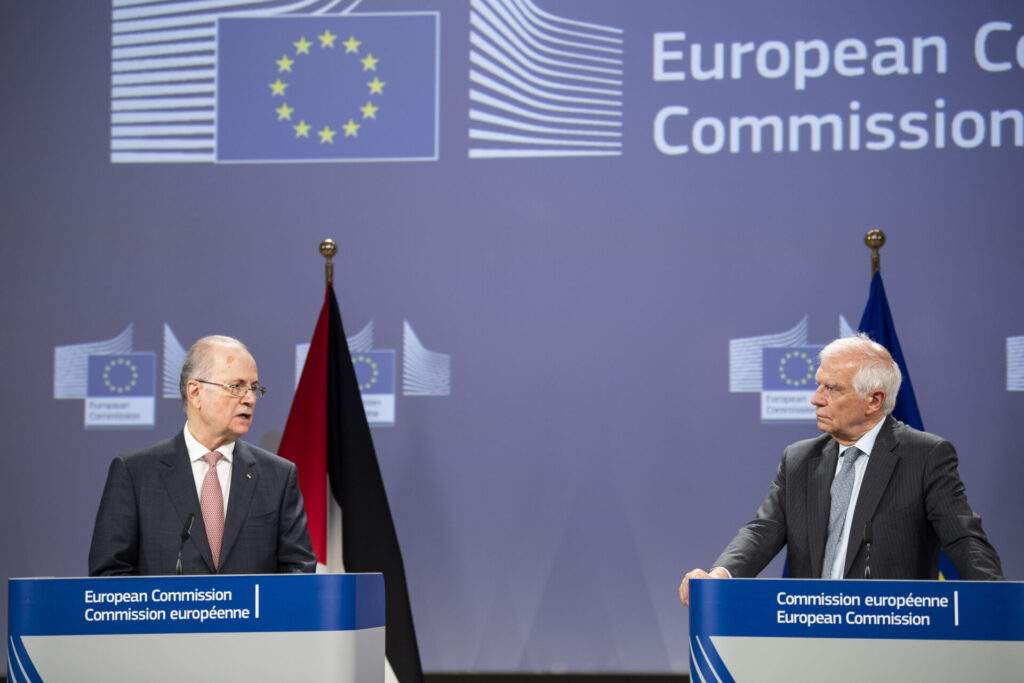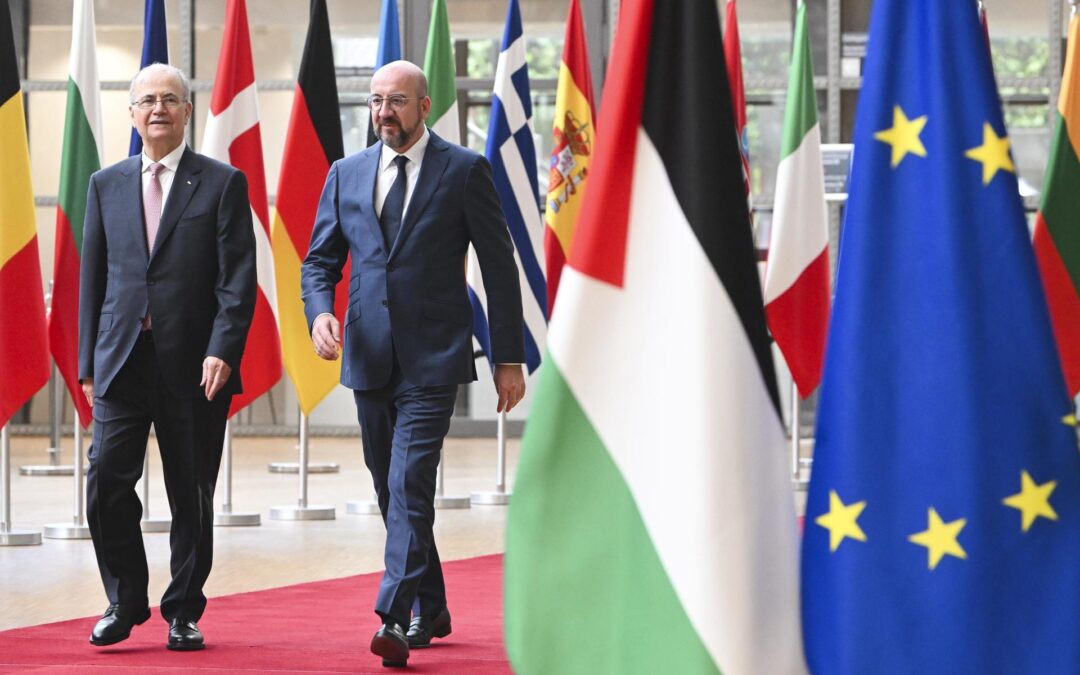Brussels – The high representative of the European Union (EU) for Foreign Affairs, Josep Borrell, stated this Sunday that recognizing Palestine as a State “is not a gift for Hamas” nor does it imply “supporting terrorism” and described it as “completely absurd” to equate the two, after Spain, Ireland, and Norway decided to take this step.
“Blaming these countries because this is something that could be considered as supporting terrorism or representing an anti-Semitic approach is completely out of place,” Borrell asserted in statements released by his press team after hosting in Brussels a ministerial meeting of partners and international donors of the Palestinian National Authority (PNA).
Borrell’s statements come after Israel again criticized Spain today for recognizing Palestine as a State with a video posted on the X account of Israeli Foreign Minister, Israel Katz, accompanied by the message “Hamas thanks your services” and a mention of the Spanish Prime Minister, Pedro Sánchez. At this point, the Spanish Foreign Minister, José Manuel Albares, today described the tape as “execrable” and made it clear that nothing will deter Spain from recognizing the Palestinian State.
The head of the community diplomacy is aware that there are other EU countries, besides Spain and Ireland (Norway is not a member), that are also “considering” recognizing Palestine as a State and reminded that the EU “does not have the capacity” to do so, as it is a national competence.
For Borrell, the International Court of Justice (ICJ), the UN’s highest court, which this Friday demanded that Israel immediately halt its military offensive in Rafah to prevent the “total or partial destruction” of the Palestinians of Gaza as a group protected by the Genocide Convention, has “nothing to do with anti-Semitic positions” either.
“It is a court that interprets laws and makes decisions in accordance with International Law. It has nothing to do with a moral position or anti-Semitic positions,” he concluded.

Borrell also expressed “concern” over the decision taken by the Israeli Government to “stop giving the Palestinian Authority the tax revenues that belong to the Palestinian Authority” as a result of the Gaza war.
“There is a great risk that the financial instability (of the Palestinian Authority) will increase and no support plan can cope. No support plan can replace the taxes that belong to the Palestinian Authority,” he added.
Hours earlier, in a statement prior to today’s meeting in Brussels of international partners and donors of the PNA, the new Palestinian Prime Minister, Mohamed Mustafá, asked precisely the international community to pressure Israel to unlock the PNA funds that Israel keeps frozen.
The meeting, attended by twenty countries (including Spain) and international organizations, was chaired by the Norwegian Foreign Minister, Espen Barth Eide, and was hosted by Borrell himself at the European Commission headquarters.
“We have been listening to the new Prime Minister of the Palestinian Authority, who explained his reform plans, and I think everyone was impressed by the deep reforms he plans to implement,” commented the head of European diplomacy about Mustafá, who was visiting Brussels for the first time since taking office in mid-March.
“These meetings are key to moving towards an independent, sovereign and viable Palestinian State. Today is a very important opportunity to present to our international partners the plans and priorities we have, as a new government, for the next term,” Mustafá said in a statement prior to today’s ministerial meeting, held at the European Commission’s headquarters.
The head of the Palestinian government presented himself as a reliable partner in the eyes of the international community and set the reconstruction of Gaza as the first priority of his new executive, calling for a ceasefire.
After this first meeting, Borrell announced that this afternoon he was going to participate in another ministerial meeting organized in Brussels by Norway and Saudi Arabia to discuss how to “seek a political solution” to the Israeli-Palestinian conflict which, in his opinion, “can only be based” on the recognition of a Palestinian State. (May 26)
 go to the original language article
go to the original language article
